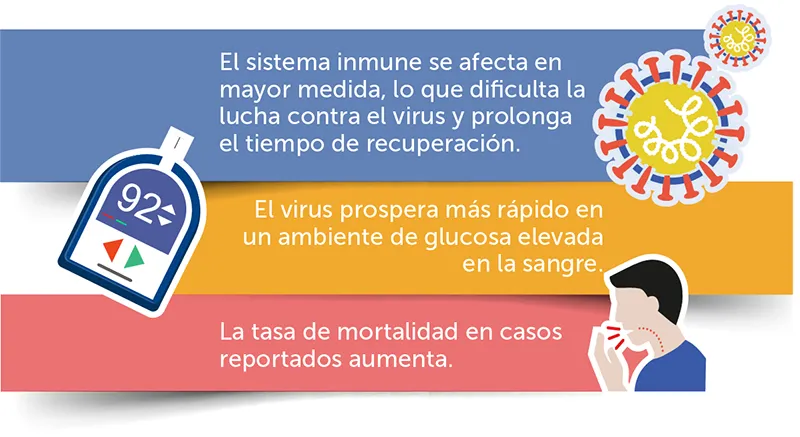Much was seen and investigated since the beginning of the Pandemia by COVID-19 on the effects of the virus in the body, both during the acute picture of the infection and after the high epidemiological.The great inflammation, which the specialists called as "cytokine storm," drives a mechanism that can aggravate the disease, as well as to leave long -term consequences.
And beyond what is known as prolonged covid, long covid or post covid syndrome, which is even more or less effects on organs that go beyond the respiratory system and that are typical of the systemic inflammatory picture caused by the SARS-COV-2, a recent study revealed that "the people who are infected with Coronavirus have a greater risk of diagnosing diabetes and cardiovascular conditions for weeks after the infection has strengthened."
According to an important study conducted in the United Kingdom, “the risk of heart and circulatory problems, such as irregular heartbeat and blood clots in the lungs, was almost six times higher in patients with COVID-19 than in people not infected with itAge and sex, and 80% higher for diabetes during the month after infection. ”
King’s College researchers in London collected health records from more than 400,000 patients with coronavirus in the United Kingdom and the same number of people who avoided the virus.Then they reviewed the records to detect new cardiovascular or diabetes diagnoses for a maximum of 12 months, and the last patient was followed until last January.
"We found that cardiovascular disease increased early after COVID-19, mainly due to pulmonary embolism, atrial arrhythmias and venous thrombosis," said the authors of the work in the publication of their conclusions.The incidence of diabetes mellitus remained high, for at least 12 weeks after Covid-19, before decreasing.People without cardiovascular disease or pre-existing diabetes mellitus suffering from COVID-19 do not seem to have a long-term increase in the incidence of these conditions. ”
As they saw, the greatest risk of cardiovascular conditions returned to normal seven weeks after giving positive for Covid, but for diabetes the greatest proportion of new diagnoses took almost six months to return to reference levels.
Dr. Emma Rezel-Potts is an epidemiologist of the King's College in London and on what was found at work, she stated that “it is really that doctors are aware of the possible increase in risk for their patients and, in particular, how they can reduce theRisk of diabetes in the first three months after infection through an improved diet and exercising. ”
While it was seen that COVID-19 can cause direct damage to the organs and the circulatory system, Rezel-Potts emphasized that many factors could explain the findings.“For example, patients with COVID in the study were more likely to be overweight and more underlying health problems than the non -infected control group, which predisposed them to other conditions.Some patients may have had non -diagnosed diabetes or heart problems that only came to light when they were infected with Covid. ”
While the researchers did not even determine a "cause-effect" relationship between the coronavirus and the appearance of these pathologies, they insisted that doctors should be attentive to diabetes and cardiovascular diseases when patients are infected Covid, and remind themthat simple changes in lifestyle can help reduce the risk of additional diseases. ”
As they saw in the investigation, which was published in the PLOS Medicine magazine, the encouraging data is that"In the long term, the risk of cardiovascular diseases and diabetes seems to return to reference levels.""But we must be cautious in the acute period of cardiovascular disease and take into account that the risk of diabetes seems to rise for several months, so it could be a good opportunity for risk prevention," said Rezel-Potts.
For Dr. Faye Riley, "there is more and more evidence that COVID could be triggering new cases of diabetes in some people, and the last study sheds light on when and how long the risk could be."
“While the growing evidence is worrying, it is not yet clear if the COVID-19 is directly causing new cases of diabetes, if it is bringing in light cases of previously diagnosed diabetes or if there are other factors at stake-observed the specialist-.There is also much to learn about the types of diabetes that could trigger COVID-19 ″.
The specialists agreed that “it is important that everyone is aware of the signs and symptoms of diabetes, such as inexplicable weight loss, the feeling of thirst or fatigue, or going to the bathroom more frequently, whether it has hadCovid-19 or not. ”






